Vacation in Lebanon: Edde Sands Hotel Resort in Byblos
Edde Sands in Byblos used to be a simple resort and now it is a top tourism destination in Lebanon. Roger Edde describes the amazing story of Byblos, and hospitality and tourism industry in Lebanon.
Interview with Roger Edde, Chairman of Edde Sands (Assalam Party)
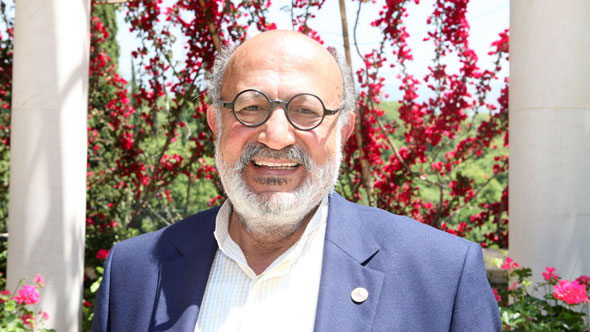
First of all, how did you start your business in Lebanon?
Coming back to Lebanon I thought first to create the global village like the Lebanese Bangalore, there was a time in fact when I was involved in developing in Bangalore a power plant and the business of a little Silicon Valley that can grow and maybe one day control Silicon Valley as Bangalore start ups did, it was impossible for me to do it in Lebanon because of the politics, and then I thought what can I do for my country that is coming out of the war, not fully, having a broken society and a broken political leadership.
Long-term because when you invest in tourism you are investing in the industry that has the greatest potential for growth in the Middle East and globally. With the communications revolution, the world becoming a small village, in spite of the fact that you can communicate through the net, personal communication remains essential in business, but personal knowledge of the world, that you are seeing through the multi-media, when you see it played, you see its charm and beauty, you start to understand and get familiar with it through the net, the second step is to try to go there.
In fact we are entering a world where the business of tourism and entertainment and moving around the world we discover other cultures and other places has become the greatest industry in my opinion, it may not be the industry that makes miracles like new technologies, using robotics, using 3D systems, biotechnology which has tremendous potential, but the one that is accessible to all people, in all the places in the world is that place that attracts people to come and discover their fellow human beings in different corners of the world.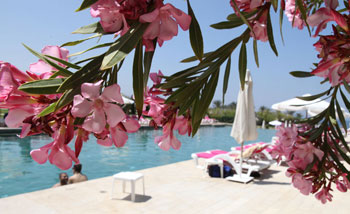
In fact when I was doing my international business, every country I went to, to do business or to explore the possibility of doing business was equivalent to me in learning to a University degree, I felt that when I went to Japan, I felt that when I went to India, I felt that when I went to Latin America as well as obviously to different parts of the Middle East and Europe.
Here in Lebanon we were already considered as a tourist destination for Europeans and Middle Eastern people around the Mediterranean. The presence of the Lebanese diaspora all around the world also made Lebanon a tourism destination because Lebanese, first they are interested in going back and visit their families as they are family oriented, they love their country and they have a memory of their country that has been translated into real passion with the problems the country has lived through, every time someone in the family suffers you have a special attention to them, if they well, if they are OK, when a country suffers the people who have originated from that country have a special attention to their home country.
Plus the Lebanese presence in the world despite our small numbers, we may be 16 million around the world we are only 4 million in Lebanon, make them talk about Lebanon to their friends and they are a community of extroverts and they are also a community that has the tradition of receiving, giving, establishing contacts, networking in business and in friendship which means that Lebanon was already a place that so many people from around the world who would come to if they could with a reasonable environment of security first, accessibility and minimum service.
Lebanon also had a tradition of being a place where you come not only to enjoy history, because it’s a place where the history of the Roman Empire in addition to the history of the Judeo Christian religion which became the Muslim religion, and place of pilgrimage, it’s really at the heart of the old world which means many were interested in the cultural value of Lebanon as a destination, many were interested in the Lebanese’s naturally welcoming attitude towards non-Lebanese.
“What can you do for your country that is long-term and labour-intensive?”
I thought that Lebanon has suffered throughout the war through real interruption in that spirit, in that goodwill that we had. It was a priority for me, for the economy and for the Lebanese cause; peace and special attention from the international community help Lebanon get out of the other’s war on Lebanon, to start to re-attract the Lebanese diaspora first, the Lebanese elite that are in Lebanon to a place that is neutral, that has been neutral throughout the war, because Byblos was never a scene of confrontation throughout the war.
If you look at the feasibility normally I would not be able to have any feasibility study encouraging me to start a project in Byblos because the Lebanese community that makes up the base for any resort is a Lebanese elite that normally does not like to travel the 20 miles that it takes to come to Byblos. They concentrate in the capital, hotels, beaches, restaurants, museums, everything is in the capital, everything is in Beirut, attracting them out of the capital was already a challenge in itself, but because I believe in supply economics, I thought if I could provide the offer, the demand would come.
I started Edde Sands as a very basic beach resort, starting to clean the beach which had suffered from years of war of accumulation of garbage and stones and whatever had been used and abused during the war, as happened in many places, you threw it into the sea or near the sea, during war you are not wary about enjoying the beach’s beauty. And we started with some tents and showers, and the basic facilities needed to have a Lebanese Mezza, and some basic treatment of the fish we pick from the sea nearby.
In fact the first to get attracted to the place where the diplomatic community: Ambassadors and their friends, their staff, they were the first to get seduced by that place. 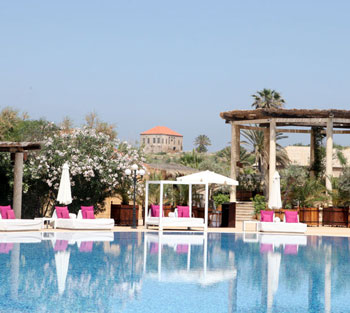 That was encouraging to go a step further, and then year after year we started to develop a concept that can compete with St Tropez, and Cannes and Miami Nikki beach etc. Why we thought of these places is simply because most of the Lebanese elite would spend a fortune in these places, I was myself living in the south of France, in Antibes and that was the quality of service that I would expect is what I wanted to offer in Lebanon.
That was encouraging to go a step further, and then year after year we started to develop a concept that can compete with St Tropez, and Cannes and Miami Nikki beach etc. Why we thought of these places is simply because most of the Lebanese elite would spend a fortune in these places, I was myself living in the south of France, in Antibes and that was the quality of service that I would expect is what I wanted to offer in Lebanon.
Any seasonal project is not a good business that is something that I also knew very well from my international business activity, this is why my approach has been to start the seasonal thing and then try to develop it into a four-season business which is not impossible because in fact the place is two ways between the two major cities in Lebanon: Beirut and Tripoli, the north and the south and the heart of the Mt Lebanon area which is 7 miles from the Casino du Liban which is also a destination which has been recognized since the 60’s and 70’s.
The success did breed success immediately and then I went on with a supply side approach: the more you offer, the more you have a clientele which is attracted and takes, and I thought that a beach resort can be nice but after a while it can be boring, the adventure of Edde Sands is that it is in a city that is already a destination for cultural tourism, Byblos a more than 7 thousand year old city, with its old castles, souks, archaeological sites, needed to have a life, because without a life a city can die, and it can become a good tourist city but a dead city.
When I was involved in developing business in Venice and in the region Marghera I realized that the number 1 threat to Venice is the people of Venice not living in it any more, just the tourists coming in and out and that takes away the charm, that also takes away the ability to really and truly maintain a place. This is why I thought it was so important for the city, as well as for the tourist, to invite him to Edde Sands, from where he can walk in 5 minutes and be inside the Archaeological site of Byblos, to have restaurants and clubs, artisans a real local life, in the old souk – in a very clean, safe and beautiful environment.
We rehabilitated shops in the old city and turned them into a real attraction and that was in fact in my opinion a bigger success than the offer of Edde Sands itself on the beach. Because suddenly the whole city of Byblos became a place of prosperity for the people of Byblos, a place attracting investors who normally would not invest anywhere outside of Beirut, if they go outside Beirut they go to another capital in the Middle East or in Europe, that was also something very important for me because it suddenly propped up the business in the whole region of Byblos; the price of land went up 20 times at least everywhere, not only near Edde Sands directly or where we had the old souk redeveloped but on every hill around Byblos the value went up 20 times plus.
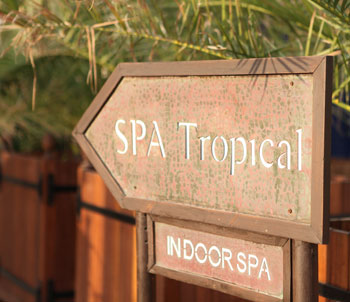
My concept then developed into a real full development of Byblos from the seashore to the snowy mountains the region of Laklouk, which are 35 minutes from Byblos could become part of one package for the tourist as well as for the Lebanese visitor.
So you started to operate on this integrated tourism concept…?
That’s why I thought of destination Byblos because in any development the best approach for a development is to take four cornerstones and to start the project in each corner and that becomes a synergy of energies and Imagineering, creativity not only for the one who is starting the project but for everyone who is interested or becomes interested in investing and developing that space.
The other aspect is also dealing with the universities and schools and with the students. because of the need for personnel during the high season we were able to have students; girls and boys, it was important to have girls first, and my wife helped me a lot with that with her American and International background to encourage good families who are well off to understand that allowing their kids to serve a project and to interact with people, is as good for them as what they study at school, it’s not only because they need to have the money to finance their schools or private universities but for what it gives them as an experience in interacting with people, with realities of life, with issues of management, and a systemic structure instead of having a vacation they don’t know what to do with they have a vacation where at the same time they are profiting from a great experience, and the reward on that for me has been tremendous because I have been regularly, practically every day, thanked by people for their experience of having worked or having someone in their family who has worked at Edde Sands while finishing their studies.
That also encouraged many people to change direction in their choice of studies; many choose to go into the hospitality business, explaining that it’s a very interesting business, a very honorable kind of work that allows you to be able to use your talent and experience anywhere you go in the world if it happens that as a lady you are married to someone who lives in a different place, or if you family goes into a Diplomatic position in a different place, or it doesn’t matter, for any reason you are forced out of the place that you are in, or go to another place you can have a job immediately and a highly paid job because you got experience in a place which is internationally recognized. Many of our summer staff changed course and went into the hospitality business and they are doing very well and we have become as a country one of the major providers to large chains of hotels and restaurants in the Arab world and in Europe in that business.
Do you feel that the hospitality industry is a future driver of the Lebanese economy? Are you a great believer of this?
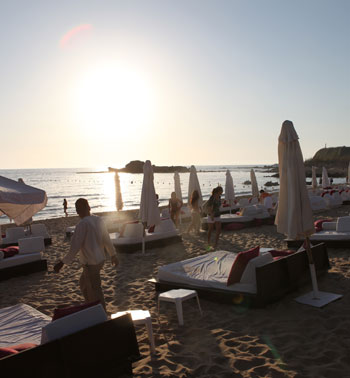
I do believe in that, but I think that hospitality should be looked at in a broader way, which means hospitality should not only be the service of hotels, restaurants, parks and such, but also that mixture of the service of healthcare and leisure. I’m not talking about social heath care, I’m talking about the service of health combined with the enjoyment of a place or a vacation: the wellness business.
Lebanese hospitals have doctors trained in the best places around the world, if you go to Mayo clinic you may find dozens of doctors who are Lebanese at any time over the last 20 years and many of them are working now in Lebanon and there are new generations coming through, I mentioned the Mayo clinic because it’s one of the most prestigious clinics around the world.
This means Lebanon when it is servicing in the field of leisure as well as in the field of health, that field is a net export because in fact you are attracting people to your country and offering the service of health and hospitality to them while you are in your country that’s an export without having all the headaches of the import-export business and what have you.
Also business was historically part of tourism in Lebanon, before the war broke out hotels like Saint George and the Phoenicia in Beirut were considered the places to be to connect and to close deals and it was not only for the Lebanese it was for international businessmen from the Arab world, from Iran, the Iranian Royal Family and the big businessmen had at least 2 floors booked for them all year long for business purposes.
This is why for me tourism is the way for Lebanon to come back to its prestigious image as Switzerland of the Middle East. Many elite around the world discovered Switzerland for banking reasons and enjoyed Switzerland as a very beautiful place. Lebanon has that multiple dimension when it comes to the tourist and banking industries.
I would like to mention one thing which I consider to be very important, we had a lot of prestige with our exclusive casino in Lebanon, unfortunately the Casino in Lebanon could have been a better destination after the war, the problem is that the Casino is no longer controlled by the private sector but controlled by the Central Bank of Lebanon, it is the first time in history that a Central Bank of Lebanon has controlled the Casino because for the reputation of the Central Bank this would have been an anathema anywhere in the world, but that´s Lebanon.
The Central Bank in Lebanon was in fact, and is still, a tool for the government and whoever is leading the government or has any influence on the government, even the currency is fully controlled, the price of currency should be able to float if you want to have an economy that can respond to its success, that can be mirrored in the currency value or its failures that should also be mirrored in the currency value and corrected later on when the economy is corrected up or down. Anyway, that is not the worst we have been through.
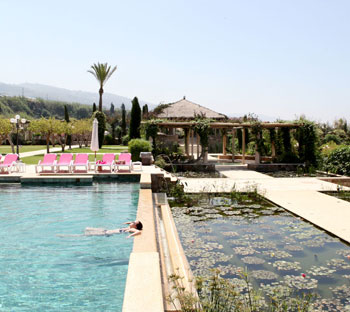
To finalize the interview I would like to ask you about your political party, but I want your personal touch to that, why are you trying, you have always been an entrepreneur, a visionary, you have faced a lot of criticism, what keeps you motivated, what keeps your drive?
First, I believe that Peace is the haven of the human condition. Without it the best of human nature cannot develop its potential and the worse in human nature comes to surface and can make life hell. I am a believer in individual liberties, economic liberties, democratic liberties, in fact Lebanon was able to survive 40 years of wars and unrest because of the collapse of the government, because when the government collapses you have, de facto, more liberties and in my historical evaluation of what we have been through in Lebanon, the greatest resistance Lebanon was able to put to the attempts to break it to pieces or to absorb it as Syria tried many times is the culture of liberties which allowed businessmen to invest, universities to open, throughout the period of the war new universities opened, new schools opened, new hospitals opened, the Lebanese resisted by keeping the will of initiating in their country, traveling abroad and coming back and reinvesting in their country.
When it comes to a vision for the future I think the vision should not be separated from the vision of what the Arab Spring should bring to this area and to international peace and order, the Arab Spring could legitimize itself, it´s legitimate today because it´s a demand of change from a status of abusive and corrupt dictatorship everywhere, and as we all have learned absolute power corrupts us absolutely, but that legitimates the act of revolt to bring about change, but what change?
Becomes the worry or the question in the mind of every observer, and in my opinion the Arab Spring should be about values of liberties, values of human rights, whoever is the carrier of the flag of leadership of the day after. For an Islamic party to be legitimized, the first thing it needs to do is to respect the separation of state and religion, to respect the acceptance of the other, to respect the principal of the liberty of every individual to believe in whatever he wants to believe in, or to not believe, and there is nothing wrong with that principal if you are a Muslim party leading, because the only thing he has to do is go back to his Koran where his god tells him “You cannot impose religion”, there is no imposition in Islam, well in fact the Roman Empire when it adopted Christianity it imposed Christianity on the pagan world. When Islam came 7 centuries later the principal of the Koran, that Islam is a choice, Islam cannot be imposed on people, you can believe in whatever you wish to believe in, or even chose not to believe in God.
Many choose to go into the hospitality business, explaining that it’s a very interesting business, a very honourable kind of work that allows you to be able to use your talent and experience anywhere you go in the world…
When it comes to economics the same principal applies, Islam is not theologically neither communist nor socialist, Islam is about free enterprise and there is in Islam every principal that can complement and be part of the thinking of the Mount Pelerin society, of Fredrick Hayek in his book “The Road to Serfdom”, or Milton Freedman and the Chicago School of Economics.
Islam is not a Marxist Socialist thing, it is everything but not that, if the Arab Spring is bringing Muslim parties to some countries, these Muslim parties need to have a vision also of economical liberty for entrepreneurs, giving every individual and every small company the chance to make it big, to create wealth, governments don´t create wealth, governments are often the problem not the solution, and if you are in the third world the level of corruption becomes bigger, if the government is regulating more it means you have more people to corrupt and the tools of corruption are laws and regulations more than controls of who applies laws and regulations, this is why I am not for copying Western regulations because that copying thing, which is normal when you look up at countries that are rich and successful but they have a different history, they are looking in fact to find a solution to their own problems plus the problems of the rich are different from the problems of the poor:
if you are rich you can be more capable of redistribution. But if you are poor what are you redistributing? You need first to make it rich and then redistribute. But if you are poor then you need to encourage the poor to make each one in each corner with his own imagination. You need to facilitate his business, but not subsidize him. Subsidies have never been a solution neither for industry nor for agricultural businesses, because subsidies become again a corrupt system, when you subside you choose who to subsidize, whenever you choose you are deciding what has a chance to be successful or who should pay and who is choosing?
And who is that god that knows everything about anything sitting in his office waiting for his next election or his next promotion if he is a government employee to decide who should be subsidized and who should not be subsidized, or some groups of members of parliament who have only learned how to win an election or to become part of a party, who are they to dictate the unpredictable?
Let the reality of success and failure make the decisions and we know in business that you are a better businessman when you have failed once or twice or three times and learned from your failures, in fact success at the beginning can ruin you later, because many people have been successful at the beginning, having success after success and then they make the big bet and the big bet can be their big failure and we´re seen that in every bubble crisis, if it is the real estate business, globally, or if it is in the financial business.
When Alan Greenspan in 1998 spoke about irrational exuberance nobody listened to him, the market went up telling him “you don´t understand anything, we understand” then you have in fact a bull moving, seeing red, and moving to his death, but what does that mean?
It means simply there is nothing that can be decided to stop a bull to go into a wall or to go over a cliff, but in the end every mistake made by the crowd can only be corrected by the crowd becoming more careful next time, but what makes the decisions that make the success stories are individuals taking risks, imagining the unthinkable and making it happen!
I had the opportunity to be a 25% share holder of Microsoft for 3 million dollars, I was in one of my businesses having a subcontractor from California for whom Bill Gates was working part-time and working from his garage part-time, our sub-contractor came to me and asked me for 3 million dollars in exchange for 25% of the start up, I did not understand what programming was at that time, I asked the question “is it another computer like the Apple computer?” which was a success story at that time and he said “No, no, these are programs”, I asked the question “that can be copied?” with our Lebanese mentality, everyone copying everyone, “yes sure, everything can be copied”, I did not see, I did not realize what a start up like Microsoft could be, but I was at the time involved in the design of University of Riyadh in Saudi Arabia, I was far from LA, but do you realize how many others, Bankers, Oil Investors or Businessmen in LA, or in Washington, or in New York or in Chicago who probably missed that opportunity that was being offered to me at that time?
You see, individuals through their mistakes and through their genius, through their stubbornness and their creativity can make and break but either end it is that spirit of trying to reach the sky, wrong or right, that makes the economic success stories, that makes the world´s success stories, not dictatorship, neither the dictatorship of a little dictator with dark glasses nor the dictatorship of a parliamentary crowd that understand nothing about economics, and when there is someone amongst them that understands economics because they say it´s white the other would say it´s black, politicians worry first about their politics and their politics take into consideration first the consensual thinking, and consensual thinking is never the thinking that leads. It is the thinking that follows.